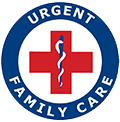A migraine headache is a specific kind of headache that lasts for hours or days. The pain can be very intense and may be accompanied by other symptoms such as nausea and sensitivity to light. Some people who suffer from migraines have them several times a month; others have them only now and then.
Causes of Migraine
The exact cause of migraines is not clear. Most experts think migraine attacks begin when a stimulus triggers abnormal activity in the brain and alters blood flow in the brain. A tendency to have migraines may be hereditary. Three times more women than men suffer from migraines.
Migraine headaches often have specific triggers, including:
- Stress at home or at work
- Fatigue or excessive physical exertion
- Changes in the weather or barometric pressure
- Eating certain foods, such as cheese or chocolate
- Fasting or skipping meals
- MSG or food preservatives, such as nitrates
- Red wine
- Bright lights, loud sounds, or certain smells
- Hormonal changes in women, birth control pills
- Changes in sleep patterns, such as jet lag, pulling an all-nighter, or sleeping too much
- Medications
Symptoms of Migraine
Many people experience warning signs before a migraine begins, such as feeling generally unwell, loss of vision, or seeing bright spots or patterns in front of their eyes (migraine aura).
Migraine symptoms include:
- Throbbing or pounding headache, sometimes on one side of the head
- Pain that gets worse with physical activity
- Extreme sensitivity to light, sounds, and sometimes sounds
- Nausea and vomiting
- Blurred vision
- Lightheadedness, and occasionally, fainting
Treatment for Migraine
Left untreated, a migraine can last from 4 to 72 hours. It is best to begin treatment as soon as you recognize the symptoms of a migraine. Early treatment can prevent the migraine from progressing and becoming more severe and difficult to manage.
You might be able to stop a mild migraine by taking a nonprescription pain reliever as soon as the symptoms begin. If your doctor has prescribed or recommended a migraine medication, take it right away. Rest in a quiet room until the symptoms disappear. Sleep often relieves symptoms.
Urgent Family Care in Knoxville, Tennessee, offers evaluation, treatment, and rescue medication for migraine headaches. We understand migraine symptoms and give you expert care quickly in a quiet environment. Our doctors will evaluate your migraine symptoms, provide appropriate treatment and follow-up care, and help you plan what to do the next time you feel a migraine coming on.
Come to Urgent Family Care if:
- You think your headache might be a migraine but you have never been diagnosed with a migraine.
- You do not have your migraine prescription and you are experiencing symptoms of a migraine headache.
- Your migraine has not responded to the medication you took.
- Your symptoms are getting worse.
- Your migraine headache has lasted more than a few hours.
- You are experiencing numbness, tingling, or weakness in your arm or leg.
- Blurred vision does not clear up after your headache starts.
- You are experiencing unusual symptoms along with your migraine headache, such as fever, stiff neck, or slurred speech.
- You are in late pregnancy.
A severe headache can be a symptom of a serious medical condition such as a stroke or meningitis. If you are experiencing symptoms different from your usual migraine headache, see a doctor right away. It is better to have your situation evaluated immediately than to “tough it out” and risk having a serious illness develop further.
Migraine Headaches in a Child
Approximately 9 percent of children in the U.S. between the ages of 5 and 13 suffer from migraines, and the percentage is higher for adolescents. Many of them have not been diagnosed with migraines. An infant can have a migraine, though it is rare.
Children’s migraine symptoms are similar to adults’, with some differences. The headaches occur more rapidly and are over sooner. Children often experience abdominal pain and nausea before or during a migraine. A child with a migraine complains of nausea or motion sickness, and a throbbing headache that gets worse with bright light.
When a child has a migraine:
- Give ibuprofen or acetaminophen for pain, NOT aspirin.
- Have the child lie down in a cool, dark room with a cool compress on the forehead.
- Have the child take deep, calming breaths.
Bring your child to the doctor if:
- Your family has a history of migraines and you think your child might have a migraine headache.
- A severe headache is associated with fever, persistent vomiting, blurred vision, or a stiff neck.
- The child suffered a head injury before the headache began.
- The headache comes back, gets worse, or lasts longer than 12 hours.
- Your child’s headaches worsen or become more frequent.
- Headaches wake your child from sleep.
- Your child’s personality changes during a headache.
Come to Urgent Family Care in Knoxville if you are worried about your child’s headache or your child seems unwell. Our doctors will evaluate your child and prescribe appropriate treatment for their headaches.
If you feel that your child is not looking well or are concerned, see your child’s doctor.
DISCLAIMER: The information on this page is not intended to replace the advice of a physician. It is information that is generally available. Always seek the advice of a physician or other qualified healthcare provider with any questions you may have regarding a medical condition. If you believe you are experiencing a medical emergency, call 911.
